Normal Letter Recognition Worksheets for Ages 3-8 - Page 3
83 filtered results
-
From - To
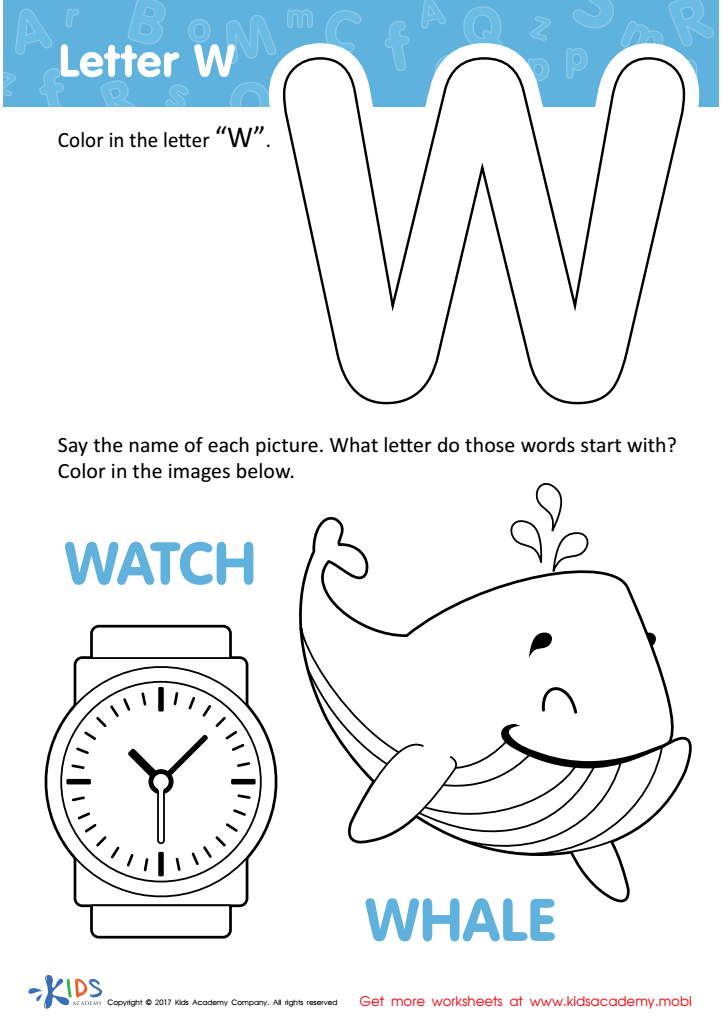

Letter W Coloring Sheet
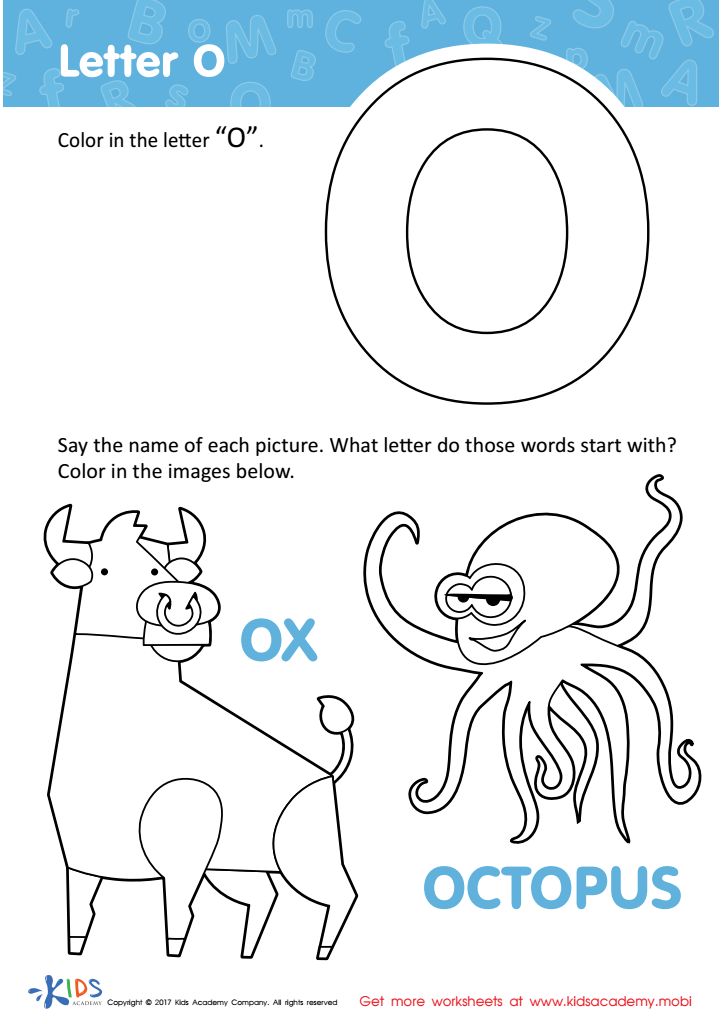

Letter O Coloring Sheet
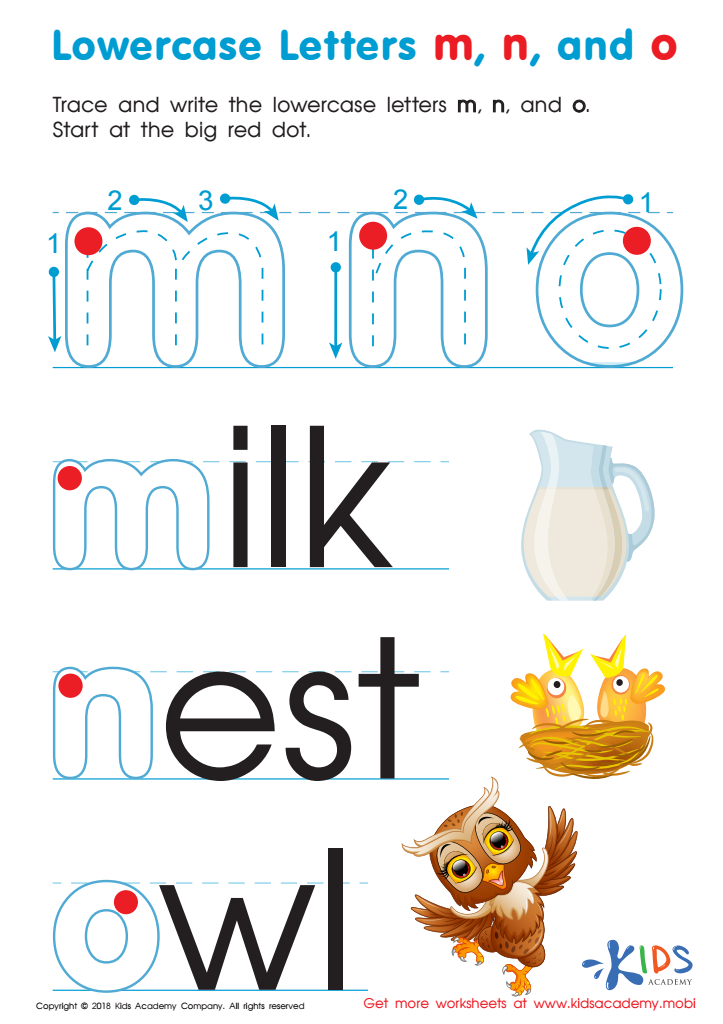

Lowercase Letters m n o Worksheet
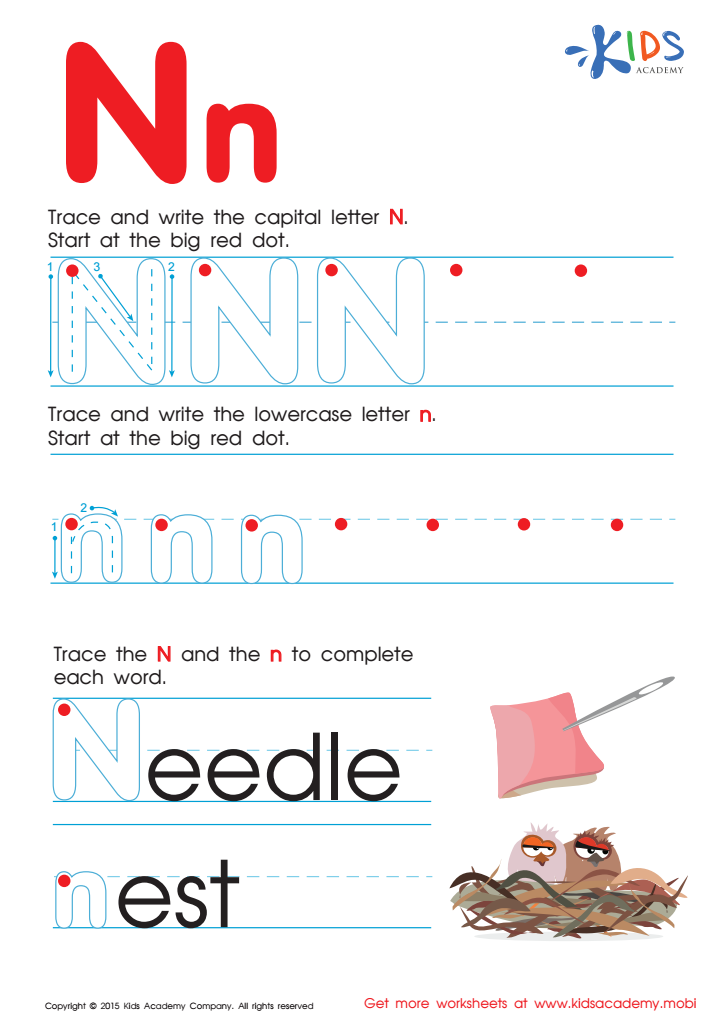

Letter N Tracing Page
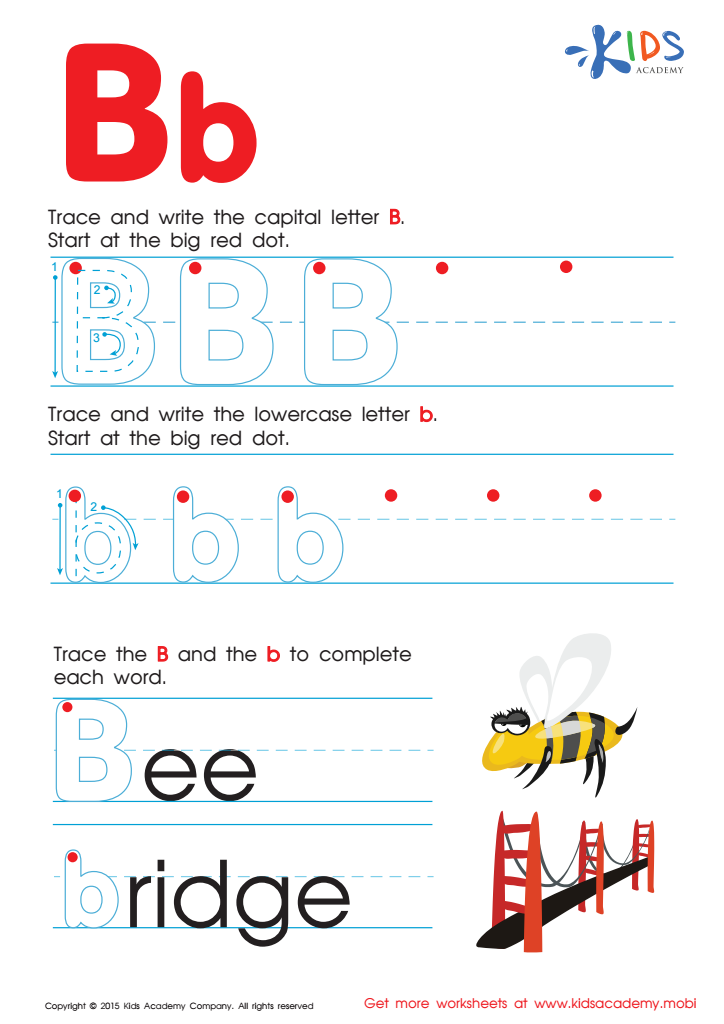

Letter B Tracing Page
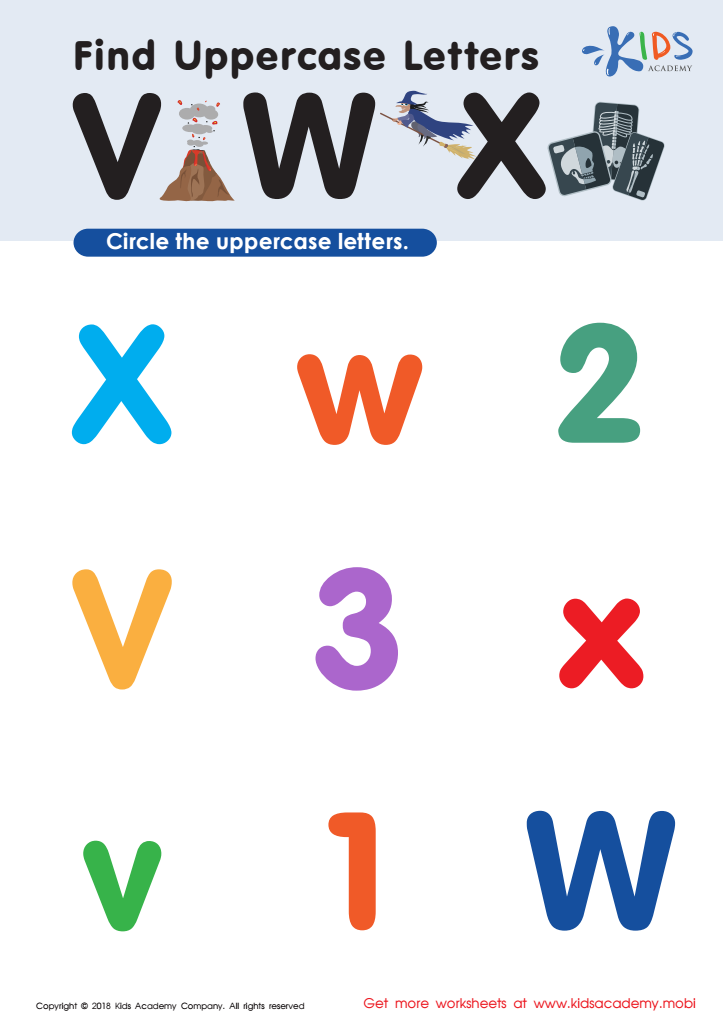

Find Uppercase Letters V, W, X Worksheet
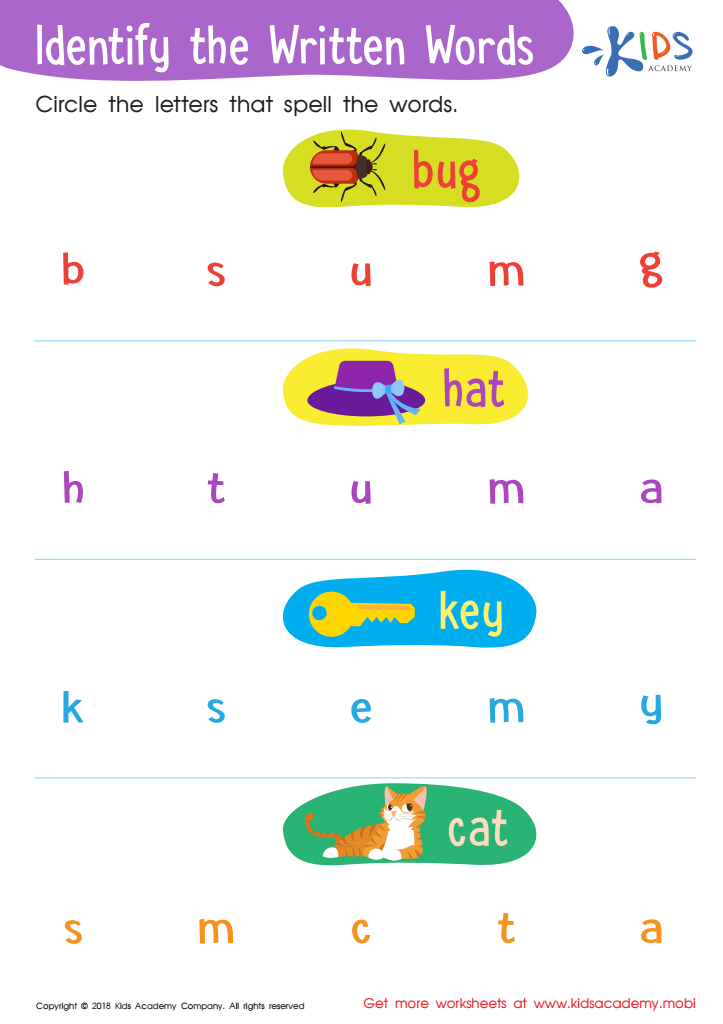

Identify the Written Words Worksheet
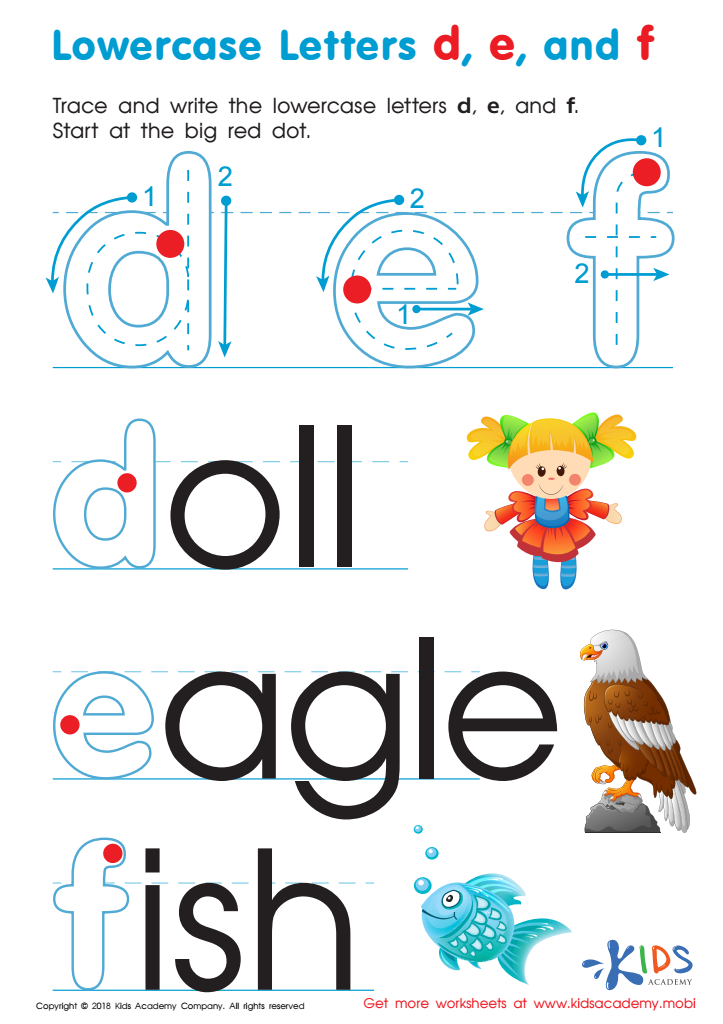

Lowercase Letters d e f Worksheet
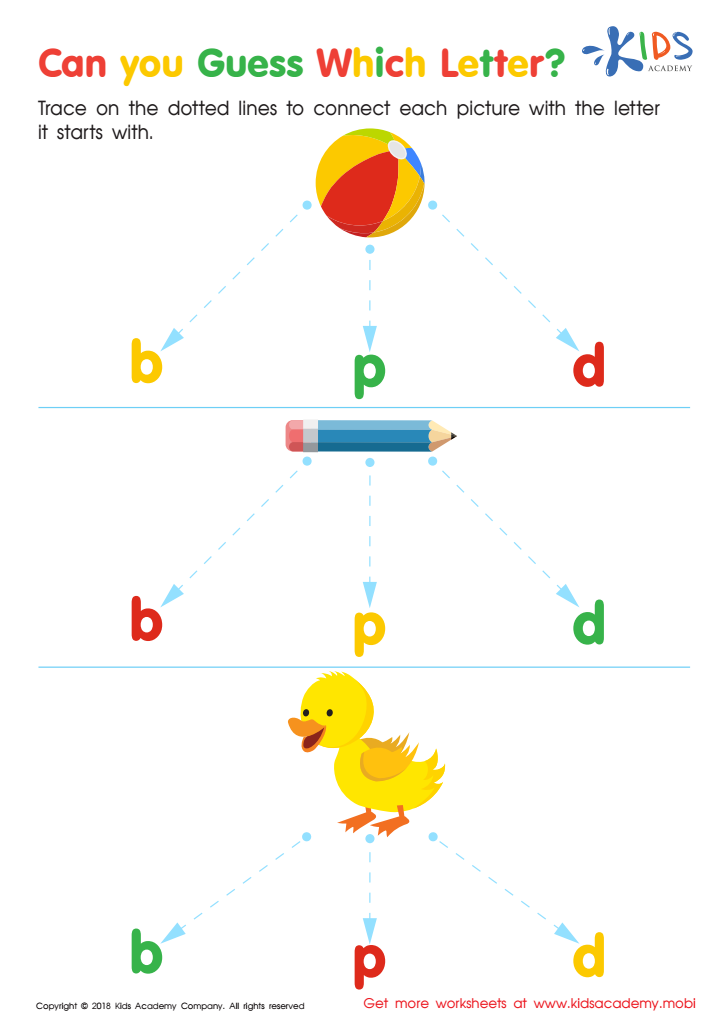

Can you Guess Which Letter? Worksheet
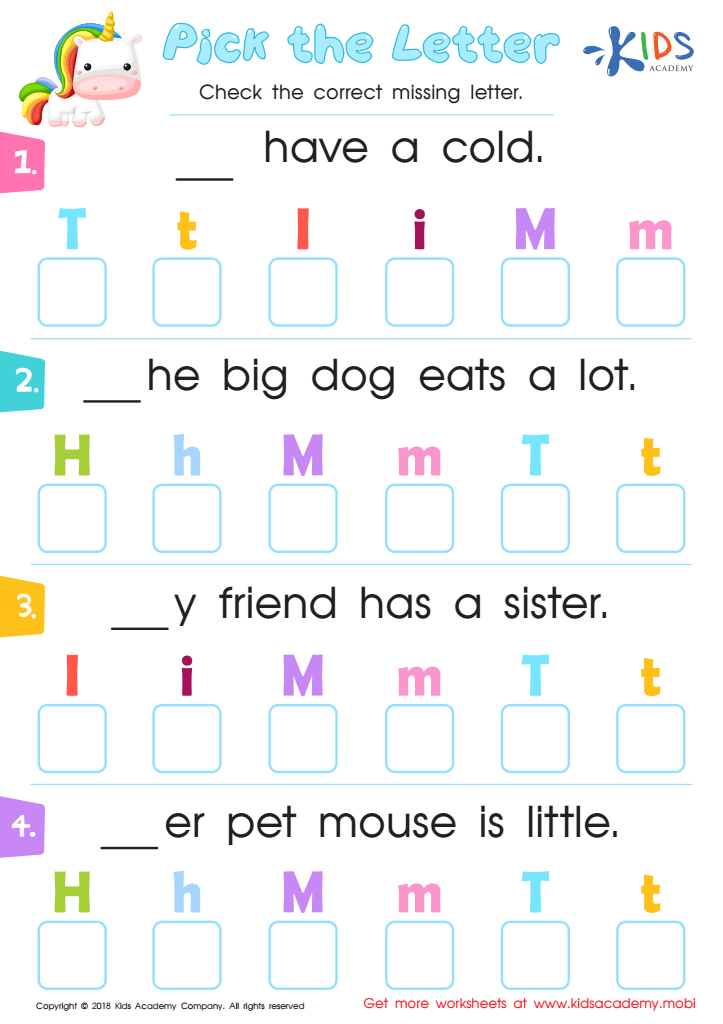

Pick the Letter Worksheet
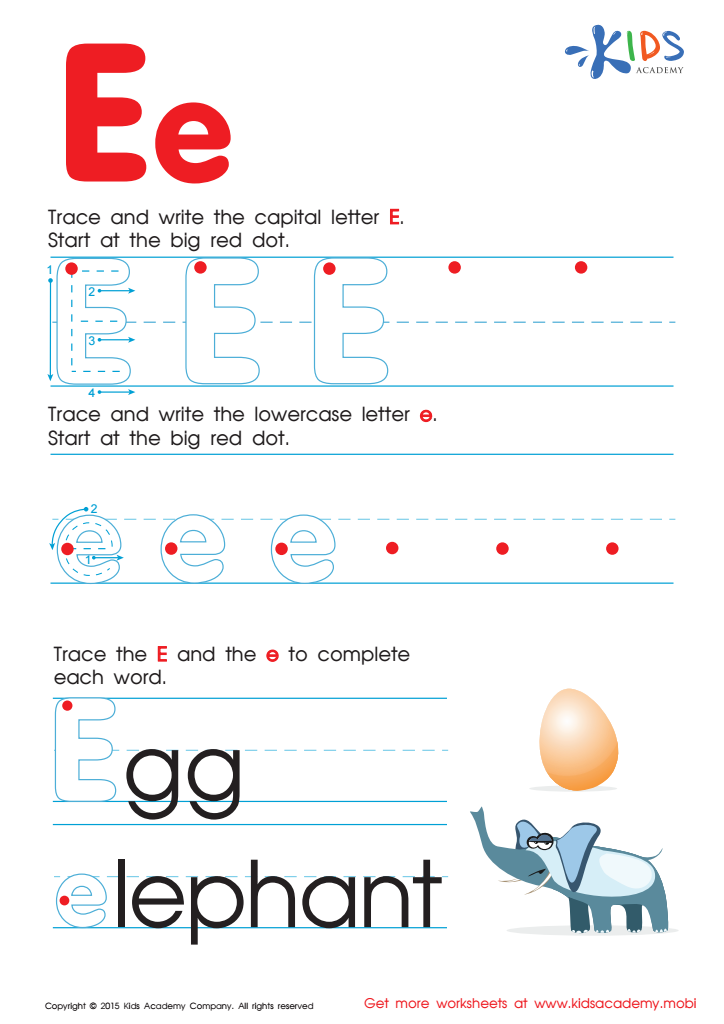

Letter E Tracing Page
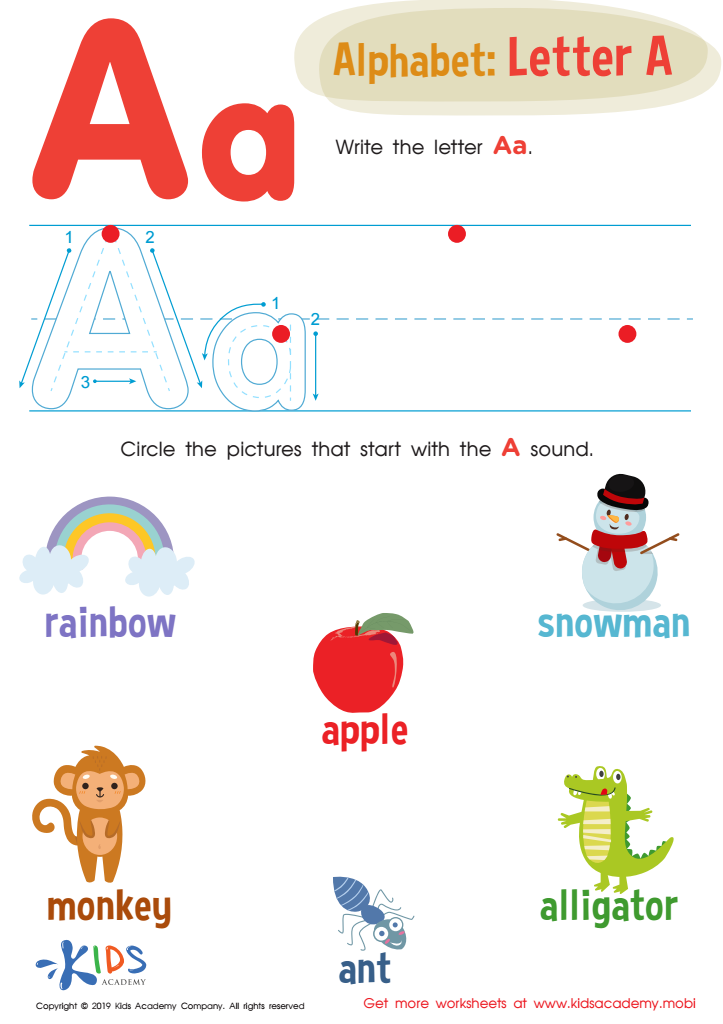

Letter A Tracing Worksheet
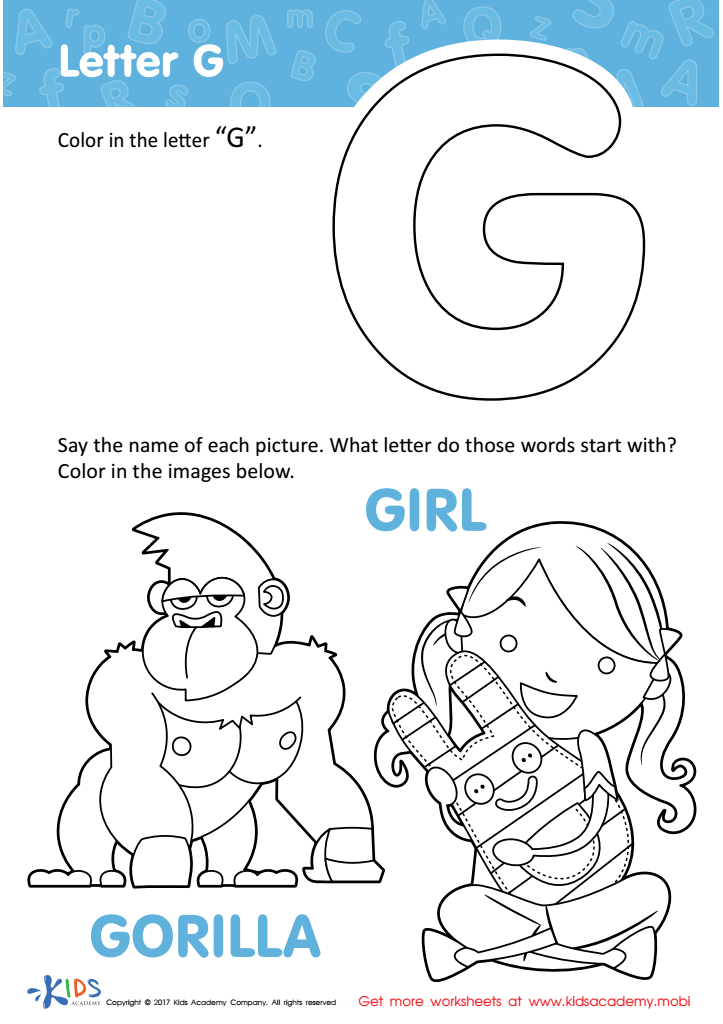

Letter G Coloring Sheet
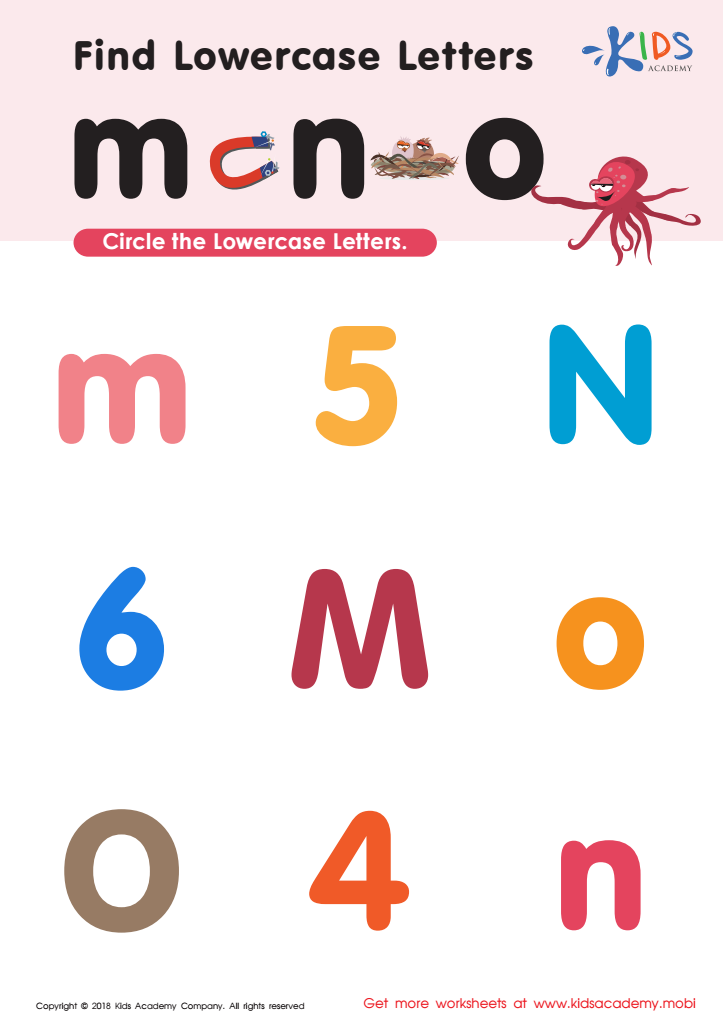

Find Lowercase Letters m n o Worksheet
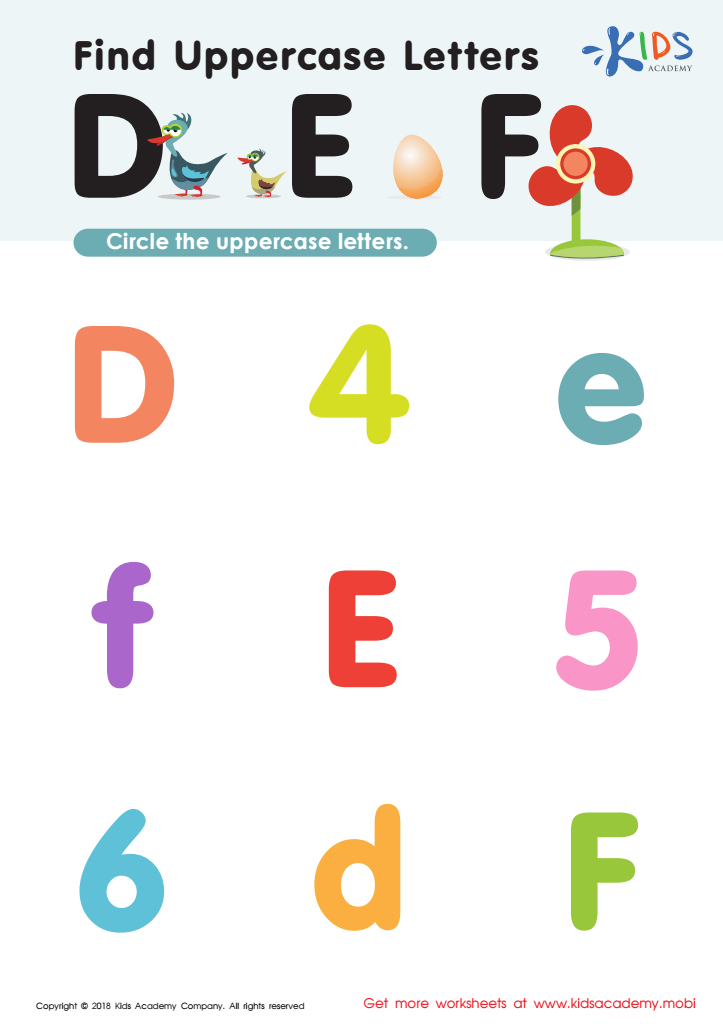

Find Uppercase Letters D, E, and F Worksheet
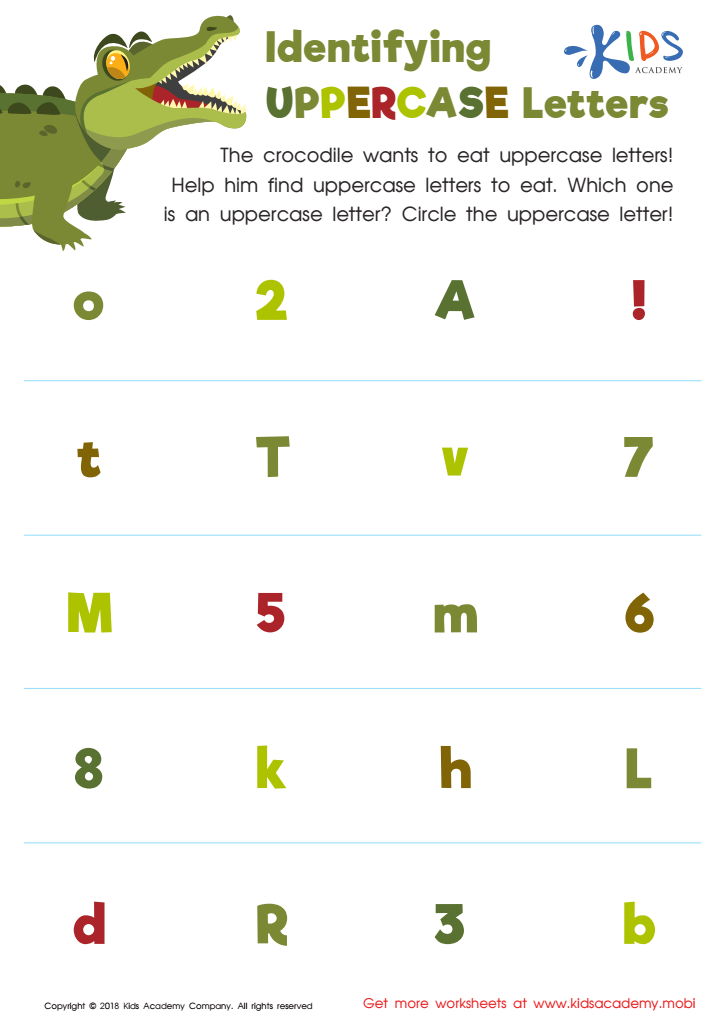

Identifying Uppercase Letters Worksheet
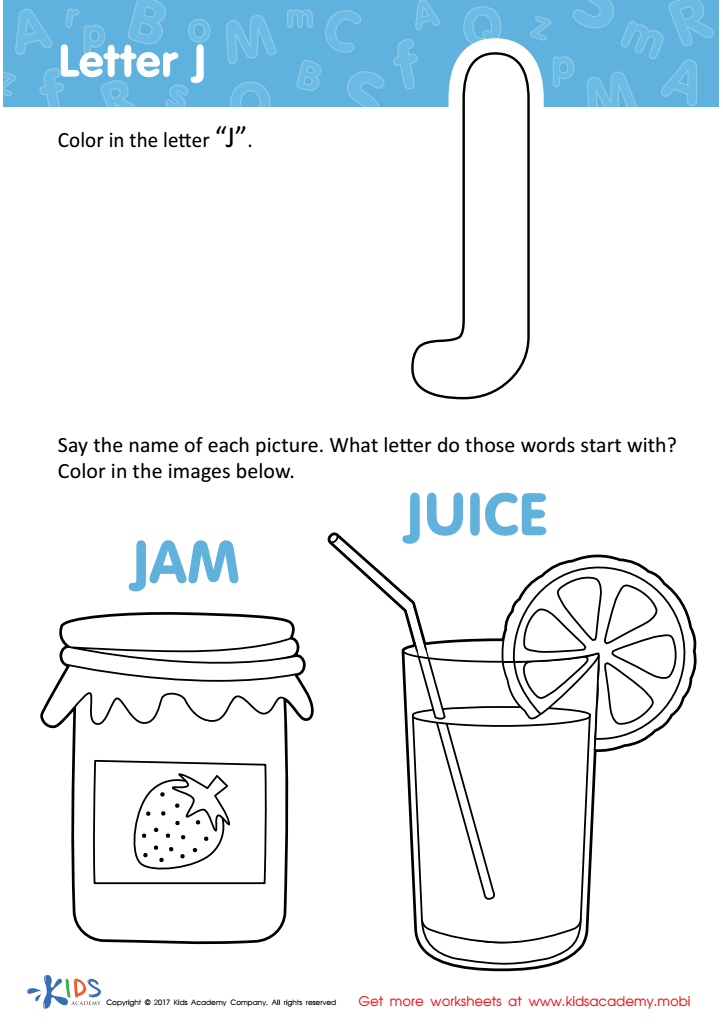

Letter J Coloring Sheet
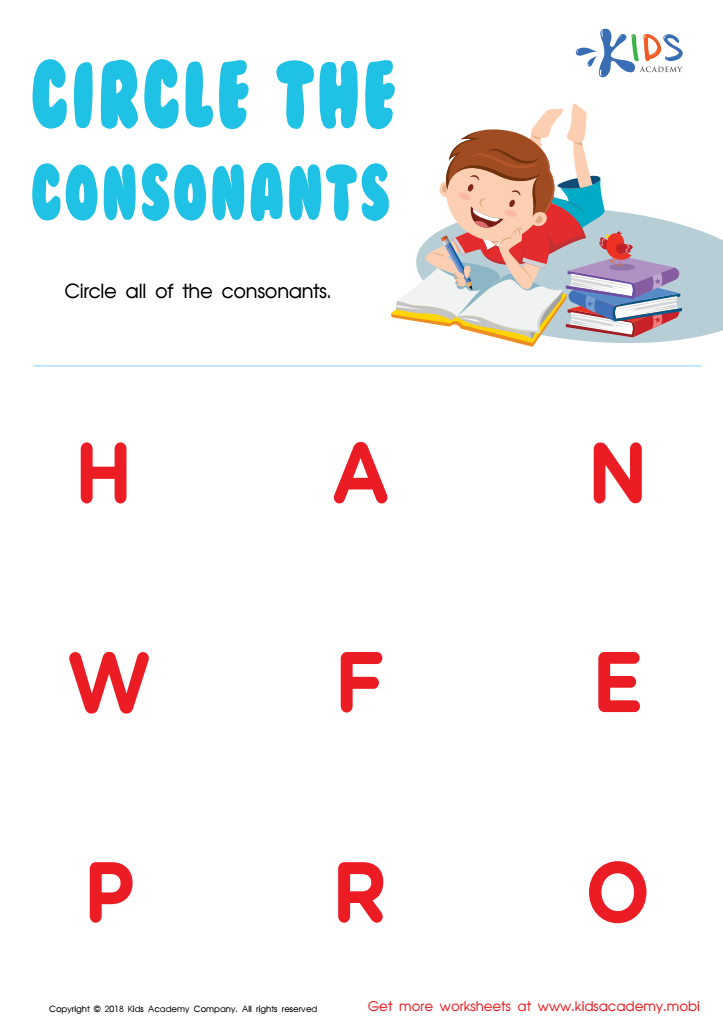

Circle the Consonants Worksheet
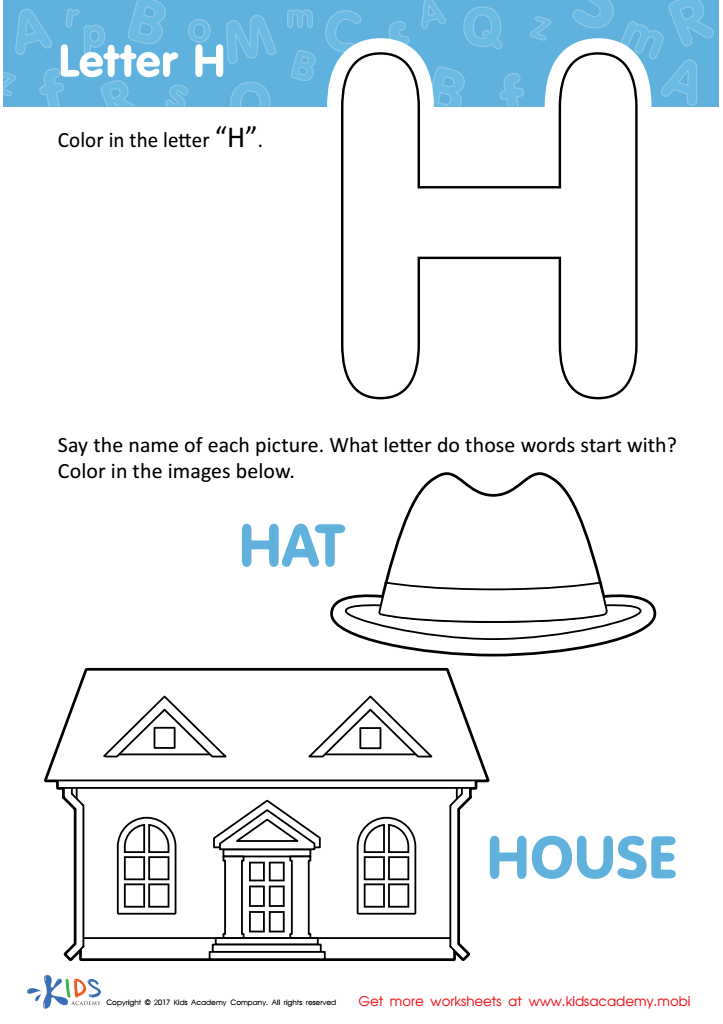

Letter H Coloring Sheet
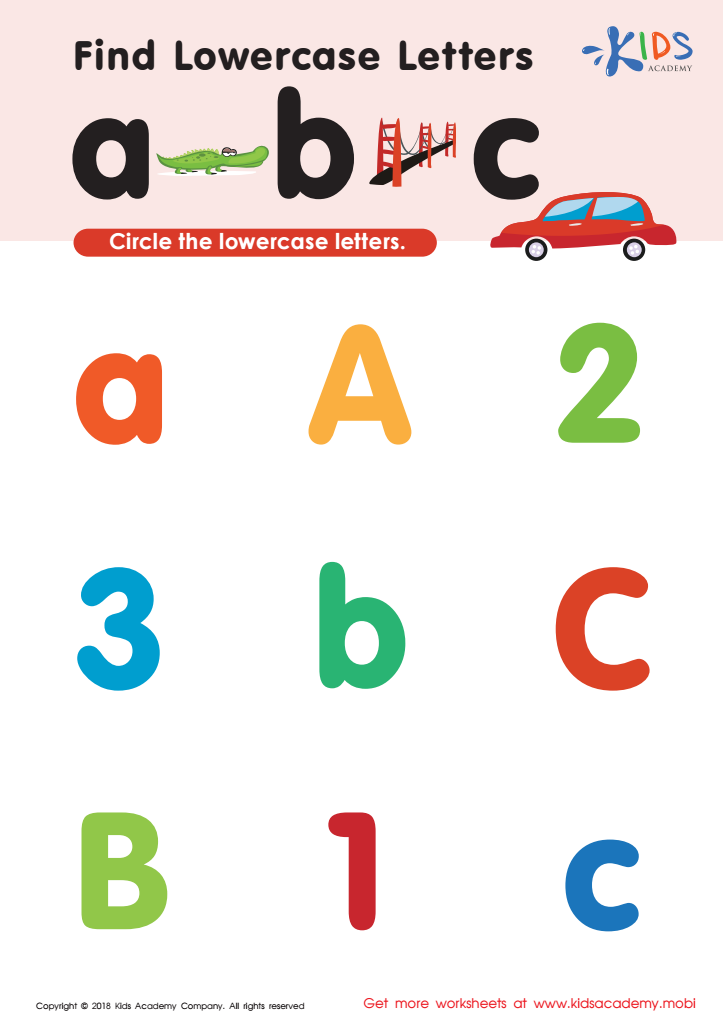

Find lowercase letters a b c Worksheet
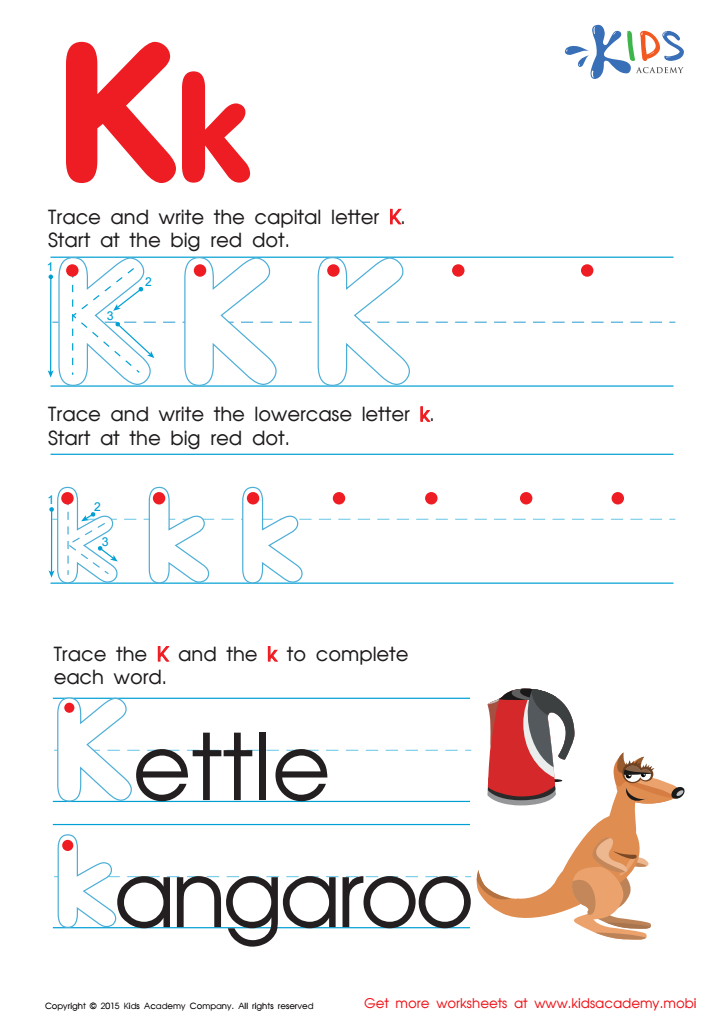

Letter K Tracing Page
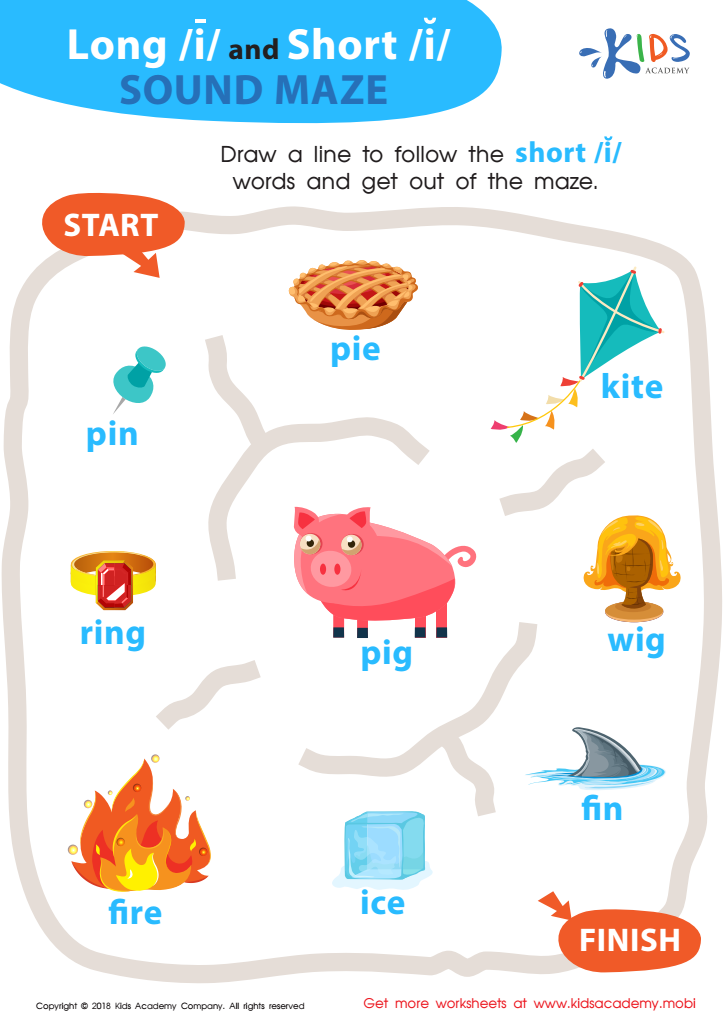

Reading: Long I and Short I Sound Maze Worksheet
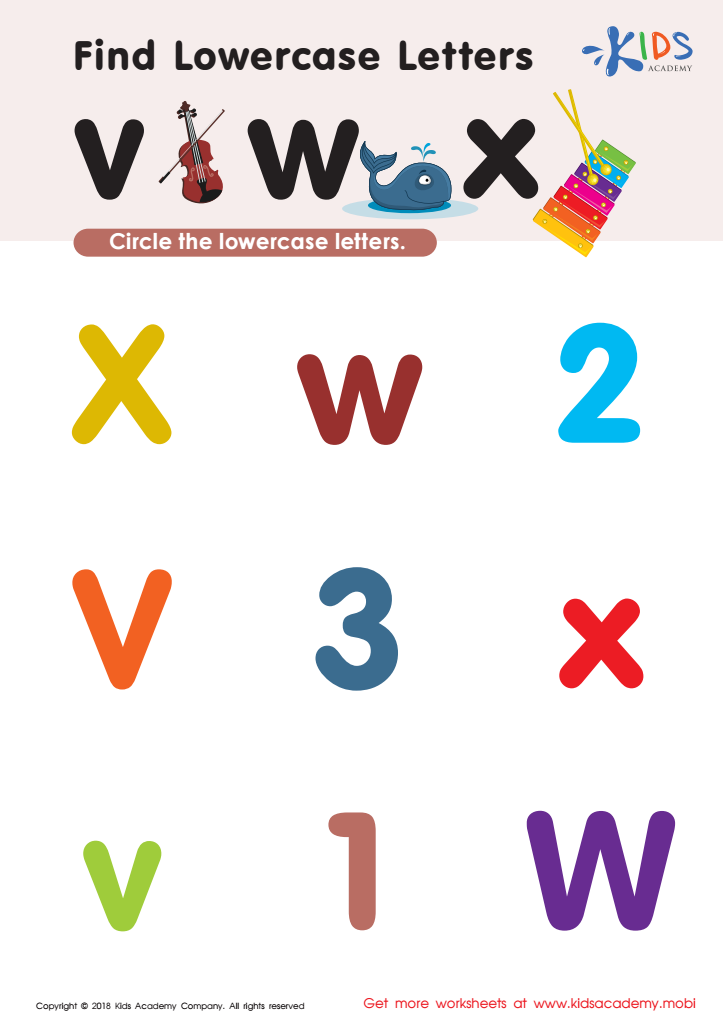

Find Lowercase Letters v w x Worksheet
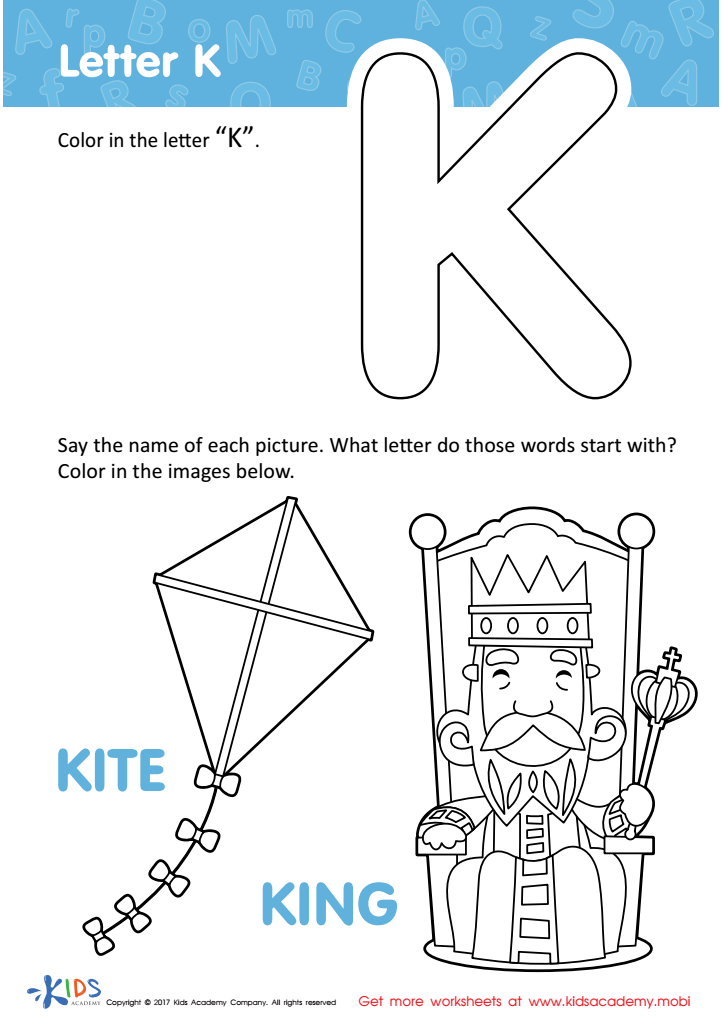

Letter K Coloring Sheet
Normal letter recognition is a fundamental skill that serves as the cornerstone for literacy in children aged 3-8. During these early years, children's brains are highly receptive and malleable, making it the optimal period for learning foundational skills. Parents and teachers should care about letter recognition because it directly influences a child's ability to read and write effectively as they progress in their education.
First, strong letter recognition skills set the stage for phonemic awareness. Being able to identify letters quickly and accurately aids children in associating letters with their respective sounds, a crucial step in phonics, which is the method used to decode words while reading. Without a solid grasp of letter identification, children may struggle with reading fluency, impacting their overall comprehension and enjoyment of reading.
Second, early mastery of letter recognition positively impacts writing skills. Children need to recognize letters to write them, and this practice is essential for spelling and constructing sentences. The delay in learning these skills can lead to challenges in later education, including difficulties in other subjects that require strong reading and writing abilities.
Lastly, proficient letter recognition builds confidence and enthusiasm for learning. Kids who struggle early on may develop negative attitudes toward school, leading to reduced academic engagement. Ensuring that children feel competent in these early skills can foster a lifelong love for learning. Therefore, parents and teachers should prioritize normal letter recognition as a critical component of early childhood education.

 Assign to My Students
Assign to My Students























